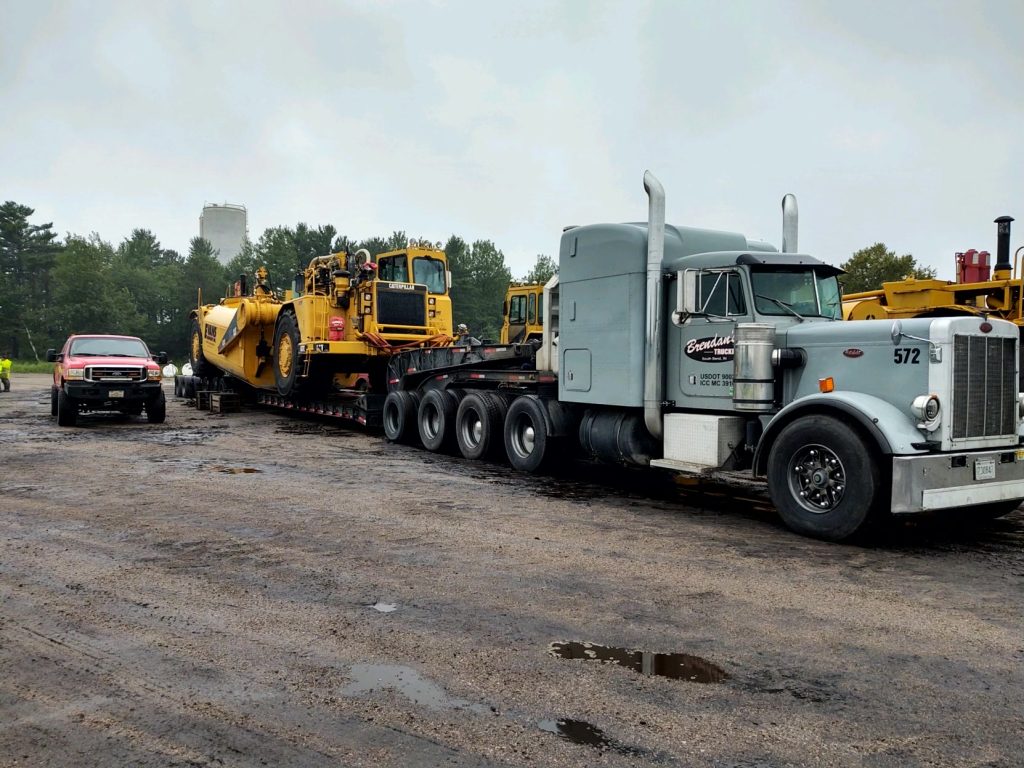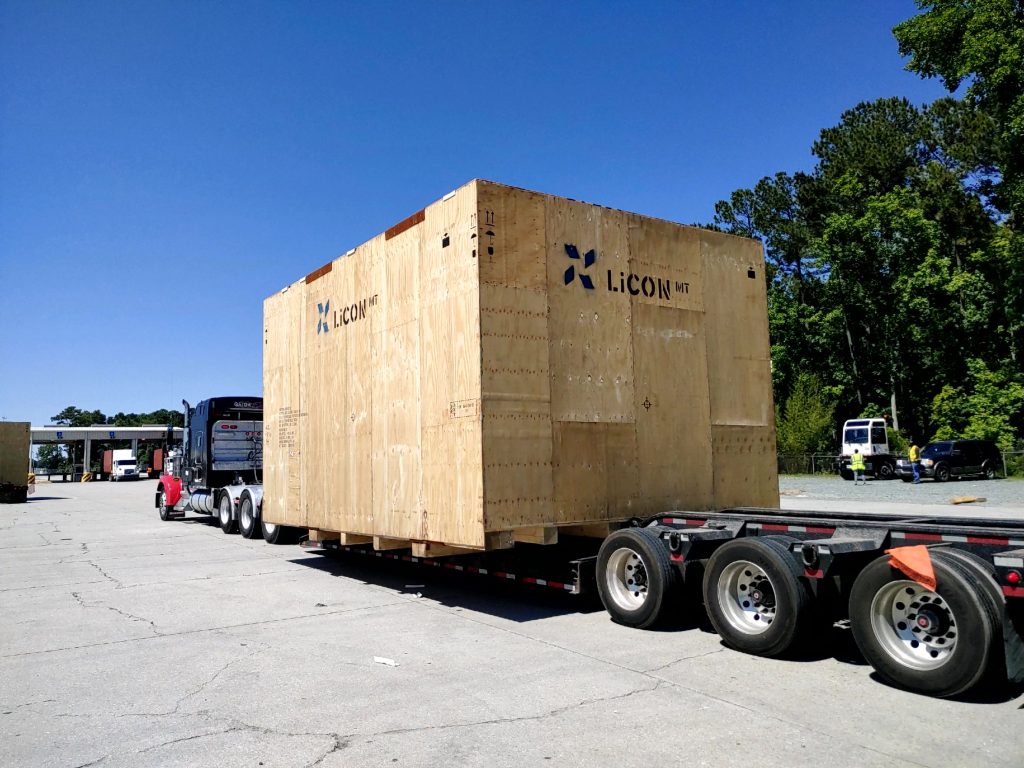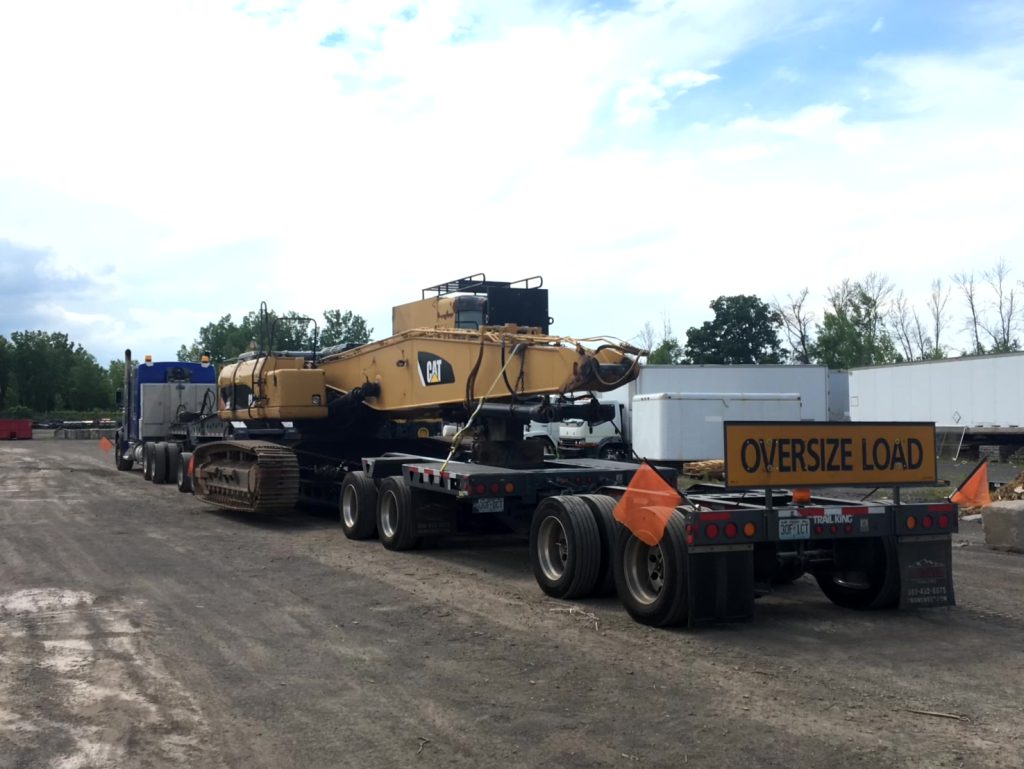Massachusetts Truck Weight Limits
Freedom Heavy Haul can offer expedited Pickup and Delivery for any size shipment anywhere in the USA. Contact us today for No Hassle, No Pressure Pricing.
The state of Massachusetts enforces specific regulations concerning the weight and dimensions of trucks operating within its borders. The Massachusetts Truck Weight Limits are carefully designed to protect both road infrastructure and public safety. The Massachusetts Department of Transportation (MassDOT) plays a pivotal role in establishing and enforcing these guidelines, which vary depending on the type of vehicle and the nature of its use.
Detailed Massachusetts Truck Weight Limits
In Massachusetts, the weight and size restrictions for trucks are meticulously defined to cater to a range of vehicles, from commercial trucks to semi-trailers and buses. These limitations are set not just for the protection of road surfaces and bridges but also for the safety of all road users. The standard weight limit is carefully calculated based on the vehicle type and its intended use, taking into account both the empty weight of the vehicle and its potential maximum loaded weight.
Comprehensive Guide to Height and Length Restrictions
Height and length restrictions are equally important in trucking regulations. In Massachusetts, these limits ensure that vehicles can safely navigate underpasses, bridges, and tunnels without causing damage or posing a risk to public safety. The maximum allowable height and length vary depending on the type of truck and the roads it will be traveling on.

For instance, the height limit in tunnels may differ from that on open roads, necessitating careful planning and route selection by truck operators. Safe heavy haul transport ensures that these guidelines are followed.
Procedures for Oversize/Overweight Vehicle Permits
When a truck exceeds these standard dimensions or weight limits, obtaining an oversize or overweight vehicle permit becomes necessary. The MassDOT provides a streamlined process for acquiring these permits, which involves an assessment of the vehicle and the intended route. Compliant heavy haul transport in Massachusetts ensures the safety of both the vehicle and the infrastructure while operating under these permits.
Regulatory Adherence and Violation Consequences
Adhering to these weight limits is not just a matter of regulatory compliance; it is crucial for the safety and efficiency of transportation. Violations of these regulations can result in significant penalties, including fines and legal repercussions. Moreover, non-compliance can lead to severe safety hazards and potential damage to public infrastructure, which can have far-reaching consequences. Safe heavy haul transport practices help truck operators avoid these issues.
Special Considerations for Seasonal and Area-Specific Limits
Massachusetts also imposes seasonal and area-specific weight limits. For example, during certain times of the year, such as the spring thaw, roads may be more susceptible to damage, necessitating lower weight limits. Similarly, specific bridges or roads might have unique weight restrictions based on their design and condition.

Truck operators must be aware of these varying restrictions to avoid penalties and ensure the integrity of their routes.
Impact of Truck Weight Limits on Road Safety and Infrastructure
The imposition of weight limits is not arbitrary; it is a crucial aspect of maintaining road safety and infrastructure integrity. Heavy trucks can exert significant stress on road surfaces and bridges, leading to premature wear and potential structural failures. By regulating truck weights, MassDOT helps prolong the lifespan of road infrastructure and reduces the risk of accidents caused by overburdened or structurally compromised roads and bridges. Safe heavy haul operations protect both the infrastructure and the public.
Resources and Support for Truck Operators
To assist truck operators in complying with these regulations, MassDOT provides various resources and support services. These include informational guides, route planning assistance, and access to permit application processes.

These resources are designed to help truck operators navigate the regulatory landscape efficiently and with minimal disruption to their operations.
Emerging Trends and Future Developments in Truck Weight Regulations
The landscape of truck weight regulations is continually evolving. In response to changing technology, infrastructure conditions, and transportation needs, Massachusetts periodically reviews and updates its truck weight regulations. Truck operators and companies must stay informed about these changes to remain compliant and competitive in the dynamic world of commercial transportation. Safe and compliant heavy haul practices are essential to ensure smooth operations in the face of regulatory changes.
Conclusion
Understanding and adhering to Massachusetts truck weight limits is essential for all truck operators and transportation companies. These regulations play a vital role in ensuring road safety, protecting infrastructure, and facilitating efficient commerce. As the state continues to update and refine these regulations, staying compliant with safe heavy haul practices remains a top priority for the trucking industry.
References and Additional Resources
For more detailed information and guidance, truck operators and companies can refer to the Massachusetts Department of Transportation’s official website and its resources on truck weight limits and related regulations.







